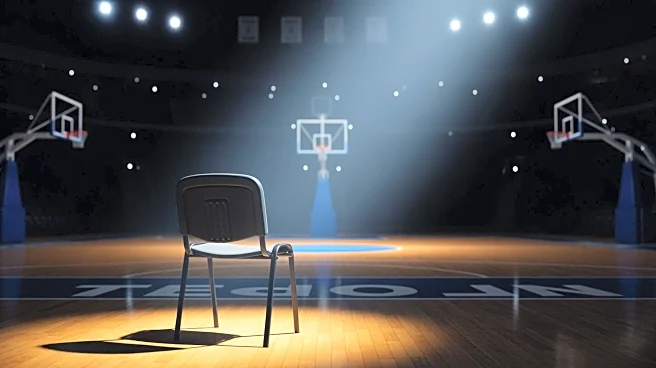What's Happening?
LeBron James, the Los Angeles Lakers star, is being taken to a small claims court by a fan who alleges fraud, deception, and misrepresentation. The fan claims to have been deceived out of hundreds of dollars
spent on tickets for a Lakers game against the Cleveland Cavaliers, believing it would be James's final matchup against his former team. The fan is seeking to reclaim the cost of the tickets, totaling $865.66. The controversy arose after James shared a video teasing 'The Second Decision,' which many interpreted as an announcement of his retirement. However, it was later revealed to be an advertisement for his collaboration with Hennessy. James, who is entering his 23rd NBA season, will miss the start of the season due to sciatica and is expected to be sidelined for all Lakers' games in October.
Why It's Important?
This legal action against LeBron James highlights the complexities and potential pitfalls of celebrity endorsements and social media promotions. The case underscores the influence of public figures on consumer behavior and the expectations fans have regarding transparency and authenticity. For James, this lawsuit could impact his public image and raise questions about the ethical responsibilities of athletes in their promotional activities. The outcome of this case may set a precedent for similar disputes involving high-profile athletes and their interactions with fans.
What's Next?
As the legal proceedings unfold, there may be increased scrutiny on how athletes communicate with their fan base, particularly through social media. The case could prompt discussions within the sports industry about clearer guidelines for promotional content and the responsibilities of athletes in managing their public personas. Depending on the court's decision, James might need to address the implications of his promotional strategies and consider adjustments to avoid future legal challenges.
Beyond the Headlines
This situation raises broader questions about the intersection of sports, marketing, and legal accountability. It highlights the potential for misunderstandings when promotional content is not clearly distinguished from personal announcements. The case could lead to a reevaluation of how athletes leverage their platforms for commercial purposes and the need for transparency to maintain trust with their audience.









